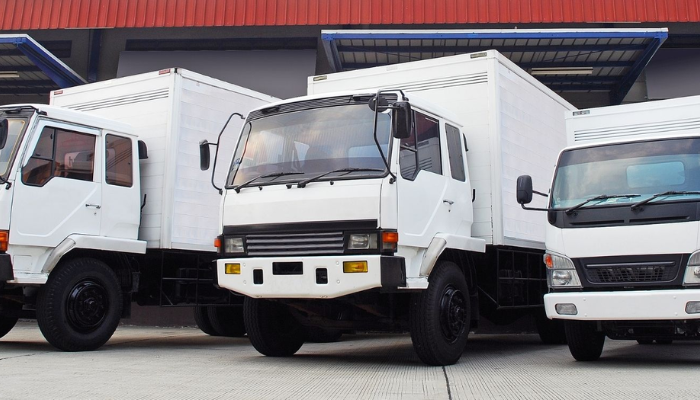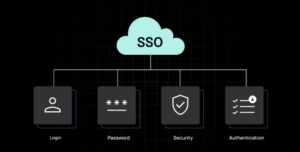
The box truck business is booming in 2025, offering entrepreneurs an exciting opportunity to launch a profitable, flexible, and scalable venture. Whether you’re looking to break into the logistics industry, start a moving company, or offer delivery services, a box truck business gives you the wheels to drive success—literally.
Thanks to the rise of e-commerce and increasing demand for local delivery services, the box truck business has become one of the most accessible and low-barrier industries to enter. In this comprehensive guide, we’ll explore everything you need to know—from startup costs and licenses to marketing strategies and common challenges. Buckle up; this journey could lead you straight into the driver’s seat of a thriving business.
Understanding the Box Truck Business Model
The box truck business model is simple yet highly versatile. A box truck, also known as a cube truck or straight truck, features an enclosed cargo area that’s perfect for transporting goods. Entrepreneurs typically use these trucks for local deliveries, long-distance hauling, or specialized services like junk removal or furniture delivery.
One major advantage of this business model is its flexibility. You can operate as a solo driver-owner, lease your truck to companies, or even hire a team and build a small fleet. Box trucks serve multiple industries, including retail, construction, logistics, and moving services, making them a valuable asset in both urban and rural areas.
The box truck business also offers excellent scalability. Start small with a single vehicle and scale as your revenue grows. With relatively low overhead, a solid marketing plan, and efficient operations, it’s possible to generate steady cash flow and build a strong customer base. Plus, the box truck’s size allows it to navigate tight city spaces while carrying large volumes—making it ideal for last-mile delivery services.
How to Start a Box Truck Business in 2025
Starting a box truck business begins with proper planning and registration. First, write a clear business plan that outlines your goals, target market, services, pricing, and projected financials. Then, choose a business structure—such as a sole proprietorship, LLC, or corporation—to establish your company legally.
Once registered, obtain an EIN (Employer Identification Number) for tax purposes and apply for necessary licenses. These might include a commercial driver’s license (CDL) if your truck exceeds a certain weight, as well as local or state business permits. You’ll also need commercial vehicle insurance, which protects you against liability and damages.
Next, invest in a quality box truck. Decide whether leasing, financing, or purchasing outright makes the most financial sense. Keep in mind that newer trucks cost more upfront but may offer better fuel efficiency and fewer repair costs. Outfit your truck with essentials like GPS, cargo straps, and dollies if you’re doing moving or delivery work.
Lastly, build a professional online presence. Create a website, set up a Google Business profile, and list your company on logistics platforms like DAT or TruckStop. A well-rounded online footprint boosts your credibility and visibility, helping you land your first customers quickly.
Profitable Box Truck Business Ideas to Explore
When launching your box truck business, choosing a profitable niche can set you apart from the competition. One popular avenue is last-mile delivery, where you partner with retailers, couriers, or e-commerce giants like Amazon to deliver packages locally. These partnerships often provide steady income and high-volume contracts.
Another lucrative option is the moving services niche. Residential and office moves are in constant demand, especially in metropolitan areas. You can market directly to renters, realtors, and businesses. Offering packing and unloading services can also increase your average job value and appeal to a wider range of clients.
Other creative ideas include junk removal, appliance delivery, event logistics, or even mobile storage solutions. With each niche, the key is identifying your local market’s needs and tailoring your services accordingly. Don’t forget to analyze your competitors to see where gaps exist that you can fill with better pricing, faster service, or unique offerings.
In 2025, many box truck entrepreneurs are even monetizing downtime by offering freight hauling between cities. Load boards and logistics marketplaces make it easy to find freight jobs on-demand. This blend of local and long-distance jobs gives your business the flexibility to earn income daily or on a schedule that fits your lifestyle.
Costs, Earnings, and ROI of a Box Truck Business
Launching a box truck business involves both upfront and recurring expenses. The biggest startup cost is the truck itself, ranging from $15,000 for a used model to $60,000+ for a new one. Other initial costs include business registration ($50–$500), insurance ($2,000–$8,000 annually), and licensing fees.
Monthly expenses may include fuel, maintenance, tolls, marketing, and payroll (if hiring). However, once you land regular contracts or develop a steady client base, revenue can quickly offset these costs. On average, box truck businesses can earn $2,000 to $7,000 per week, depending on the services offered and operating scale.
A high ROI is achievable with good management. For example, a solo operator doing local deliveries can clear $80,000+ annually after expenses. Fleet owners with multiple trucks and employees can scale to six-figure profits. Profit margins often range between 20–40%, especially when fuel efficiency and smart route planning are prioritized.
Diversifying your income—such as by offering packing services, weekend availability, or expedited delivery—can boost earnings even further. Regular financial reviews and budgeting also help maintain profitability while preparing for future growth opportunities.
Marketing and Growing Your Box Truck Business
Marketing is key to scaling your box truck business and standing out in a competitive market. Start with local SEO—optimize your website and Google Business profile with keywords like “box truck delivery near me” or “local moving truck services.” This helps potential clients find you through search.
Social media platforms like Facebook and Instagram are powerful tools for showcasing services, sharing customer reviews, and promoting special offers. Paid ads on Google or Facebook can target people actively looking for moving, delivery, or freight solutions in your area. Always include your business contact info and clear call-to-actions.
Networking is equally important. Connect with realtors, local businesses, warehouses, and freight brokers who can refer consistent work. Attend trade shows or join your city’s chamber of commerce to build relationships. Offering referral discounts is another smart way to turn happy customers into brand advocates.
As your business grows, consider expanding your services or fleet. Adding more trucks or hiring drivers allows you to take on more jobs and increase revenue. Use a CRM (Customer Relationship Management) tool to manage leads and automate bookings. The more efficiently you operate, the more clients you can serve—and the more profit you can generate.
Conclusion
The box truck business presents a lucrative opportunity for self-starters who are ready to drive their way into entrepreneurship. With relatively low startup costs, a flexible work schedule, and a high earning potential, it’s one of the most attractive small business options in 2025. Whether you’re delivering packages, moving furniture, or hauling freight, the key to success lies in smart planning, consistent marketing, and reliable service.
By understanding the business model, choosing the right niche, and managing your operations efficiently, you can build a box truck business that not only meets your financial goals but also provides long-term stability and independence. Get ready to roll—your future as a box truck business owner starts now.
Frequently Asked Questions (FAQs)
1. What is a box truck business?
A box truck business involves using a box-shaped commercial vehicle to transport goods, provide moving services, or haul freight for clients.
2. Do I need a CDL to start a box truck business?
It depends on the truck’s weight. Trucks under 26,000 lbs usually don’t require a CDL, but check your state laws for specifics.
3. How much does it cost to start a box truck business?
Startup costs range from $20,000 to $50,000+, depending on whether you lease or buy a truck, get insurance, and handle other business expenses.
4. Can I start a box truck business with no experience?
Yes, with research and planning, many people successfully start box truck businesses without prior experience in logistics.
5. What are the most profitable services in this business?
Last-mile delivery, residential moving, and specialized freight hauling are some of the most profitable services in the box truck industry.
6. Where can I find loads for my box truck?
You can use load boards like DAT, TruckStop, and Amazon Relay, or build relationships with local brokers and businesses.
7. How much can I earn per week in a box truck business?
Earnings vary widely, but solo operators often earn between $2,000 and $7,000 per week, depending on their market and service area.
8. How do I market my box truck business?
Focus on local SEO, create a website, leverage social media, and network with local businesses to attract clients.
9. Can I run a box truck business part-time?
Absolutely. Many entrepreneurs start part-time to test the market or supplement income before scaling to full-time.
10. Is the box truck business still profitable in 2025?
Yes! With rising e-commerce demand and the need for local delivery, the box truck business remains highly profitable and in demand.
The box truck business is booming in 2025, offering entrepreneurs an exciting opportunity to launch a profitable, flexible, and scalable venture. Whether you’re looking to break into the logistics industry, start a moving company, or offer delivery services, a box truck business gives you the wheels to drive success—literally.
Thanks to the rise of e-commerce and increasing demand for local delivery services, the box truck business has become one of the most accessible and low-barrier industries to enter. In this comprehensive guide, we’ll explore everything you need to know—from startup costs and licenses to marketing strategies and common challenges. Buckle up; this journey could lead you straight into the driver’s seat of a thriving business.
1. Understanding the Box Truck Business Model
The box truck business model is simple yet highly versatile. A box truck, also known as a cube truck or straight truck, features an enclosed cargo area that’s perfect for transporting goods. Entrepreneurs typically use these trucks for local deliveries, long-distance hauling, or specialized services like junk removal or furniture delivery.
One major advantage of this business model is its flexibility. You can operate as a solo driver-owner, lease your truck to companies, or even hire a team and build a small fleet. Box trucks serve multiple industries, including retail, construction, logistics, and moving services, making them a valuable asset in both urban and rural areas.
The box truck business also offers excellent scalability. Start small with a single vehicle and scale as your revenue grows. With relatively low overhead, a solid marketing plan, and efficient operations, it’s possible to generate steady cash flow and build a strong customer base. Plus, the box truck’s size allows it to navigate tight city spaces while carrying large volumes—making it ideal for last-mile delivery services.
2. How to Start a Box Truck Business in 2025
Starting a box truck business begins with proper planning and registration. First, write a clear business plan that outlines your goals, target market, services, pricing, and projected financials. Then, choose a business structure—such as a sole proprietorship, LLC, or corporation—to establish your company legally.
Once registered, obtain an EIN (Employer Identification Number) for tax purposes and apply for necessary licenses. These might include a commercial driver’s license (CDL) if your truck exceeds a certain weight, as well as local or state business permits. You’ll also need commercial vehicle insurance, which protects you against liability and damages.
Next, invest in a quality box truck. Decide whether leasing, financing, or purchasing outright makes the most financial sense. Keep in mind that newer trucks cost more upfront but may offer better fuel efficiency and fewer repair costs. Outfit your truck with essentials like GPS, cargo straps, and dollies if you’re doing moving or delivery work.
Lastly, build a professional online presence. Create a website, set up a Google Business profile, and list your company on logistics platforms like DAT or TruckStop. A well-rounded online footprint boosts your credibility and visibility, helping you land your first customers quickly.
3. Profitable Box Truck Business Ideas to Explore
When launching your box truck business, choosing a profitable niche can set you apart from the competition. One popular avenue is last-mile delivery, where you partner with retailers, couriers, or e-commerce giants like Amazon to deliver packages locally. These partnerships often provide steady income and high-volume contracts.
Another lucrative option is the moving services niche. Residential and office moves are in constant demand, especially in metropolitan areas. You can market directly to renters, realtors, and businesses. Offering packing and unloading services can also increase your average job value and appeal to a wider range of clients.
Other creative ideas include junk removal, appliance delivery, event logistics, or even mobile storage solutions. With each niche, the key is identifying your local market’s needs and tailoring your services accordingly. Don’t forget to analyze your competitors to see where gaps exist that you can fill with better pricing, faster service, or unique offerings.
In 2025, many box truck entrepreneurs are even monetizing downtime by offering freight hauling between cities. Load boards and logistics marketplaces make it easy to find freight jobs on-demand. This blend of local and long-distance jobs gives your business the flexibility to earn income daily or on a schedule that fits your lifestyle.
4. Costs, Earnings, and ROI of a Box Truck Business
Launching a box truck business involves both upfront and recurring expenses. The biggest startup cost is the truck itself, ranging from $15,000 for a used model to $60,000+ for a new one. Other initial costs include business registration ($50–$500), insurance ($2,000–$8,000 annually), and licensing fees.
Monthly expenses may include fuel, maintenance, tolls, marketing, and payroll (if hiring). However, once you land regular contracts or develop a steady client base, revenue can quickly offset these costs. On average, box truck businesses can earn $2,000 to $7,000 per week, depending on the services offered and operating scale.
A high ROI is achievable with good management. For example, a solo operator doing local deliveries can clear $80,000+ annually after expenses. Fleet owners with multiple trucks and employees can scale to six-figure profits. Profit margins often range between 20–40%, especially when fuel efficiency and smart route planning are prioritized.
Diversifying your income—such as by offering packing services, weekend availability, or expedited delivery—can boost earnings even further. Regular financial reviews and budgeting also help maintain profitability while preparing for future growth opportunities.
5. Marketing and Growing Your Box Truck Business
Marketing is key to scaling your box truck business and standing out in a competitive market. Start with local SEO—optimize your website and Google Business profile with keywords like “box truck delivery near me” or “local moving truck services.” This helps potential clients find you through search.
Social media platforms like Facebook and Instagram are powerful tools for showcasing services, sharing customer reviews, and promoting special offers. Paid ads on Google or Facebook can target people actively looking for moving, delivery, or freight solutions in your area. Always include your business contact info and clear call-to-actions.
Networking is equally important. Connect with realtors, local businesses, warehouses, and freight brokers who can refer consistent work. Attend trade shows or join your city’s chamber of commerce to build relationships. Offering referral discounts is another smart way to turn happy customers into brand advocates.
As your business grows, consider expanding your services or fleet. Adding more trucks or hiring drivers allows you to take on more jobs and increase revenue. Use a CRM (Customer Relationship Management) tool to manage leads and automate bookings. The more efficiently you operate, the more clients you can serve—and the more profit you can generate.
Conclusion
The box truck business presents a lucrative opportunity for self-starters who are ready to drive their way into entrepreneurship. With relatively low startup costs, a flexible work schedule, and a high earning potential, it’s one of the most attractive small business options in 2025. Whether you’re delivering packages, moving furniture, or hauling freight, the key to success lies in smart planning, consistent marketing, and reliable service.
By understanding the business model, choosing the right niche, and managing your operations efficiently, you can build a box truck business that not only meets your financial goals but also provides long-term stability and independence. Get ready to roll—your future as a box truck business owner starts now.
Frequently Asked Questions (FAQs)
1. What is a box truck business?
A box truck business involves using a box-shaped commercial vehicle to transport goods, provide moving services, or haul freight for clients.
2. Do I need a CDL to start a box truck business?
It depends on the truck’s weight. Trucks under 26,000 lbs usually don’t require a CDL, but check your state laws for specifics.
3. How much does it cost to start a box truck business?
Startup costs range from $20,000 to $50,000+, depending on whether you lease or buy a truck, get insurance, and handle other business expenses.
4. Can I start a box truck business with no experience?
Yes, with research and planning, many people successfully start box truck businesses without prior experience in logistics.
5. What are the most profitable services in this business?
Last-mile delivery, residential moving, and specialized freight hauling are some of the most profitable services in the box truck industry.
6. Where can I find loads for my box truck?
You can use load boards like DAT, TruckStop, and Amazon Relay, or build relationships with local brokers and businesses.
7. How much can I earn per week in a box truck business?
Earnings vary widely, but solo operators often earn between $2,000 and $7,000 per week, depending on their market and service area.
8. How do I market my box truck business?
Focus on local SEO, create a website, leverage social media, and network with local businesses to attract clients.
9. Can I run a box truck business part-time?
Absolutely. Many entrepreneurs start part-time to test the market or supplement income before scaling to full-time.
10. Is the box truck business still profitable in 2025?
Yes! With rising e-commerce demand and the need for local delivery, the box truck business remains highly profitable and in demand.







